Health authorities in Africa have said they are treating the expanding monkeypox outbreak there as an emergency and called on rich countries to share the world’s limited supply of vaccines in an effort to avoid the glaring equity problems seen during the COVID-19 pandemic.
Monkeypox has been sickening people in parts of Central and West Africa for decades, but the lack of laboratory diagnosis and weak surveillance means many cases are going undetected across the continent.
“This particular outbreak for us means an emergency,” Africa Centers for Disease Control acting director Ahmed Ogwell said.
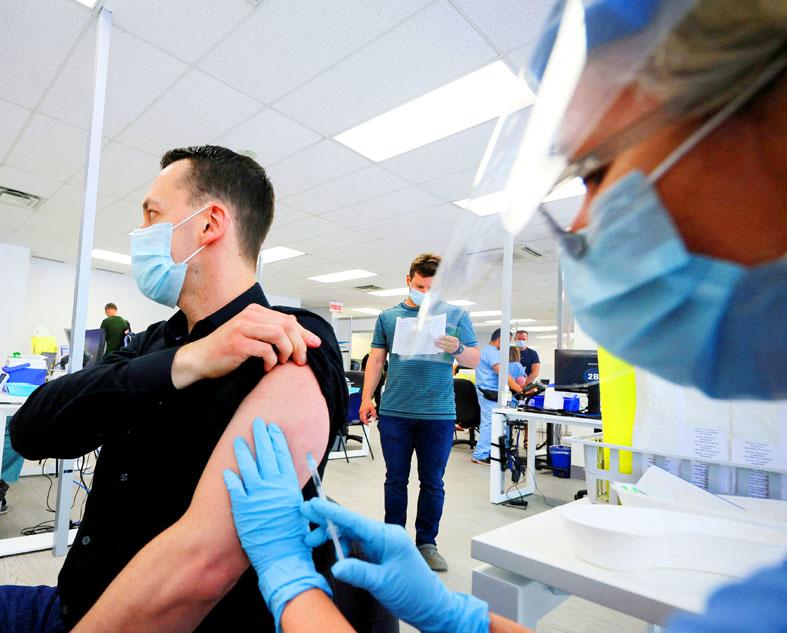
Photo: Reuters
“We want to be able to address monkeypox as an emergency now so that it does not cause more pain and suffering,” he said.
Globally, more than 5,000 cases of monkeypox have been reported in 51 countries, according to the US Centers for Disease Control and Prevention. The majority of those cases are in Europe. No deaths beyond Africa have been reported.
Within Africa, the WHO said monkeypox has spread to countries where it has not previously been seen, including South Africa, Ghana and Morocco.
However, more than 90 percent of the continent’s infections are in the Democratic Republic of the Congo and Nigeria, WHO Regional Office for Africa director Matshidiso Moeti said.
She said that given the limited global supplies of vaccines to fight monkeypox, the WHO was in talks with manufacturers and countries with stockpiles to see if they might be shared.
“We would like to see the global spotlight on monkeypox act as a catalyst to beat this disease once and for all in Africa,” she told a news briefing on Thursday.
The WHO said that similar to the scramble last year for COVID-19 vaccines, countries with supplies of vaccines to stop monkeypox are not yet sharing them with African countries.
“We do not have any donations that have been offered to [poorer] countries,” said Fiona Braka, who heads the WHO’s emergency response team in Africa. “We know that those countries that have some stocks, they are mainly reserving them for their own populations.”
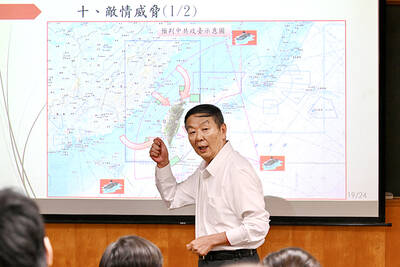
RETHINK? The defense ministry and Navy Command Headquarters could take over the indigenous submarine project and change its production timeline, a source said Admiral Huang Shu-kuang’s (黃曙光) resignation as head of the Indigenous Submarine Program and as a member of the National Security Council could affect the production of submarines, a source said yesterday. Huang in a statement last night said he had decided to resign due to national security concerns while expressing the hope that it would put a stop to political wrangling that only undermines the advancement of the nation’s defense capabilities. Taiwan People’s Party Legislator Vivian Huang (黃珊珊) yesterday said that the admiral, her older brother, felt it was time for him to step down and that he had completed what he
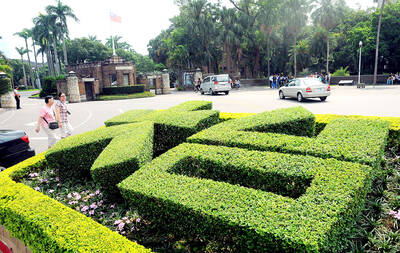
Taiwan has experienced its most significant improvement in the QS World University Rankings by Subject, data provided on Sunday by international higher education analyst Quacquarelli Symonds (QS) showed. Compared with last year’s edition of the rankings, which measure academic excellence and influence, Taiwanese universities made great improvements in the H Index metric, which evaluates research productivity and its impact, with a notable 30 percent increase overall, QS said. Taiwanese universities also made notable progress in the Citations per Paper metric, which measures the impact of research, achieving a 13 percent increase. Taiwanese universities gained 10 percent in Academic Reputation, but declined 18 percent
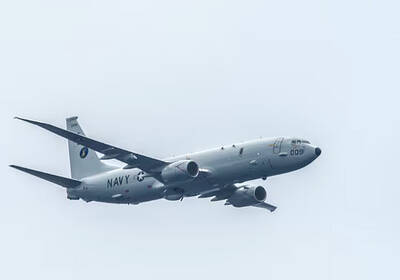
CHINA REACTS: The patrol and reconnaissance plane ‘transited the Taiwan Strait in international airspace,’ the 7th Fleet said, while Taipei said it saw nothing unusual The US 7th Fleet yesterday said that a US Navy P-8A Poseidon flew through the Taiwan Strait, a day after US and Chinese defense heads held their first talks since November 2022 in an effort to reduce regional tensions. The patrol and reconnaissance plane “transited the Taiwan Strait in international airspace,” the 7th Fleet said in a news release. “By operating within the Taiwan Strait in accordance with international law, the United States upholds the navigational rights and freedoms of all nations.” In a separate statement, the Ministry of National Defense said that it monitored nearby waters and airspace as the aircraft
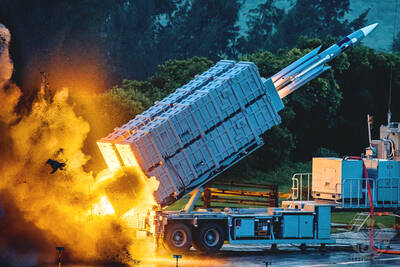
UNDER DISCUSSION: The combatant command would integrate fast attack boat and anti-ship missile groups to defend waters closest to the coastline, a source said The military could establish a new combatant command as early as 2026, which would be tasked with defending Taiwan’s territorial waters 24 nautical miles (44.4km) from the nation’s coastline, a source familiar with the matter said yesterday. The new command, which would fall under the Naval Command Headquarters, would be led by a vice admiral and integrate existing fast attack boat and anti-ship missile groups, along with the Naval Maritime Surveillance and Reconnaissance Command, said the source, who asked to remain anonymous. It could be launched by 2026, but details are being discussed and no final timetable has been announced, the source